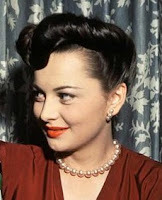The Characters of "Moral Fibre" - Fiona Barker
The female protagonist of "Moral Fibre," Georgina, faces feisty opposition to her plans and dreams from her best friend, Fiona. A woman ahead of her time, Fiona doesn't think women should be financially or emotionally dependent on men.She wants her own career and she's determined to stand on her own to feet. Yet she's an attractive young lady too, and our hearts aren't always obedient to our minds.

Excerpt 1:
“Dear Kit,” the letteropened.
“These last two weeks have been the most terribleof my life. I have watched Georgina sink in a flood of her own tears, hardlyable to breathe for grief. She is wasting away for lack of food and sleep, andnothing will console her. Watching her, holding her, trying to comfort her hasmade me realise how terrible this thing called ‘love’ really is. My beautifulfriend is being destroyed by it. I know that she will never be the same. Oh, Iknow, time heals all wounds, but Georgina will bear the scar of what Don hasdone to her for the rest of her life.
“I hope that thetime will come, when she realizes that the only one to blame for her misery isthe man who so callously shattered her happiness with his selfish ego! Don andhis pretensions of being better than everyone else! His anachronistic, aristocraticnotions of ‘duty’ and ‘honour’ have killed a beautiful, fragile, and utterly selflessbutterfly” Fiona’s anger was evidentin the deep grooves her ball-point pen had impressed upon the heavy stationary.
“Watching Georgina suffer, made me see more clearlythan before why I would not and could not ever commit myself to you. I am determinednot to let you break my heart and scar me for life. The best way to ensure thatdoesn’t happen, is never to see each other again.
“It makes no difference to me that you don’t shareDon’s class delusions of superiority. Nor does it matter that you have refusedto fly any more operations. Georgina tells me such a refusal is very seriousand could result in some sort of disciplinary action. I hope that whatever theydo to you isn’t too terrible, because I think you are only being sensible notto want to fly any further operations.
“However, I told you before you started this secondtour that I thought it was foolish and unnecessary. You wouldn’t listen to me. Ithurt me terribly that you insisted on doing this thing that I knew was wrongfor you. And though I did not see it at once, I now know that our relationshipwas doomed the moment you would not listen to me. In that moment, you put yourself-image as some sort of storybook hero ahead of a meaningful relationshipwith me. It doesn’t change anything thatyou have now learnt the hard way that I was right.
“So, this is good-bye, Kit. I honestly wish you allthe best. At least now you won’t die for some silly dream of being a hero, andmaybe next time you’ll listen, when a woman tells you something for your owngood.
“Sincerely, Fiona.”
Fiona like Georgina is training to be a teacher, and she's extremely good at it. She's not just top of her class in the theoretical subjects, when she starts her apprentice teaching she soon shines. She has not only energy and ideas, she's also practical and thick-skinned enough not to worry about being liked. The result is almost instant success and a job offer.
But Fiona is also a rebel. She resents the restrictions placed on women. She wants to have a career. She hates men who are more focused on her looks than her brain. She is not yet interested in a serious relationship. Although she dates Kit Moran for several months, she breaks up with him shortly after Don's death for the reasons listed in the letter cited above.
Her strong views mean that she thinks she knows what is best for Georgina, too. When she learns that Georgina is writing to Kit, she disapproves. She firmly believes Georgina should not get involved with any one again so soon after losing Don. She thinks Georigina should "stand on her own two feet" and learn to be independent. She fails to understand the depth of Georgina's feelings much less Georgina's great emotional strength.
She also underestimates her own needs for affection.
Excerpt 2:
They reached the bar and Adrian asked what she wasdrinking. Fiona asked for cider, and Adrian ordered for her. When it came, hepassed it to her, saying, “We were talking about what you wanted in arelationship.”
“Oh, that’s not important. I just wanted to get yourattention.”
He smiled softly. “Well, you have it. Tell me more.”
“It’s just —” suddenly she didn’t feel as sure ofherself as when she was lecturing other girls. In fact, she felt a littleconfused, but she tried to explain. “It’s just that it seems to me that people— all people, men and women — have different talents and gifts. I mean, yourfather is apparently a brilliant barrister, but you are an architect. Anotherman is skilled as a writer or a mechanic or at mathematics. We seem to acceptthat each has a role to play regardless of their chosen field, but women —we’re all supposed to good obedient wives and loving mothers. We aren’t allowedto be anything else.”
“It certainly has been that way in the past,” Adrianconceded, nodding thoughtfully. “But I think that’s changing. I know that I’drather have a wife who can talk about something other than nappies or fashion.”He tried to make it a joke but didn’t quite pull it off.
Still, Fiona appreciated his attempt at understanding.“It’s a little more than that, really,” she tried to explain. “What I’d like isto follow my own dreams. I’d like a career and income of my own. I suppose whatI’m saying, when you get down to it, is: I want to find a partner whounderstands me and loves me the way I am, with all my warts and pimples,ambitions and bad habits.”
Adrian nodded seriously. “I think that is what we allwant, but finding someone like that isn’t easy — for men or women. Frankly, Idon’t think any woman could accept me with all my faults.”
What faults could this exquisitely handsome, gentleand well-mannered man possibly be hiding? Fiona wondered. She could not believehis flaws were anything truly terrible. He probably set too-high standards forhimself, and what he considered “weaknesses” were simply things that made himmore human and interesting.
Fiona found the humble and melancholy young man athousand times more attractive than the self-confident and brash young men shehad met at other dances. She felt a powerful desire to get to know Adrianbetter. His gaze had drifted into the distance again, so she called hisattention back to her, “Adrian.” When he looked down at her questioningly, sherisked being very bold. “You’ll never know if you can be loved faults and allunless you give me a chance to get to know you better.”
MORAL FIBRE IS THE WINNER OF THE HEMINGWAY AWARD FOR 20TH CENTURY WARTIME FICTION
IT WAS ALSO A FINALIST FOR THE BOOK EXCELLENCE AWARD 2023

Riding the icy, moonlit sky,
they took the war to Hitler.
Their chances of survival were less than fifty percent.
Their average age was 21.
This is the story of just one bomber pilot, his crew and the woman he loved.
It is intended as a tribute to them all.
or Barnes and Noble.
 "This is the best book on the life of us fighter pilots in the Battle of Britain that I have ever seen.... I couldn't put it down."-- RAF Battle of Britain ace, Wing Commander Bob Doe.
"This is the best book on the life of us fighter pilots in the Battle of Britain that I have ever seen.... I couldn't put it down."-- RAF Battle of Britain ace, Wing Commander Bob Doe.
Winner of a Hemingway Award for 20th Century Wartime Fiction, a Maincrest Media Award for Military Fiction and Silver in the Global Book Awards.
Find out more at: https://crossseaspress.com/where-eagles-never-flew
For more information about all my books visit: https://www.helenapschrader.com
 Disfiguring injuries, class prejudice and PTSD are the focus of three tales set in WWII by award-winning novelist Helena P. Schrader. Find out more at: https://crossseaspress.com/grounded-eagles
Disfiguring injuries, class prejudice and PTSD are the focus of three tales set in WWII by award-winning novelist Helena P. Schrader. Find out more at: https://crossseaspress.com/grounded-eagles



